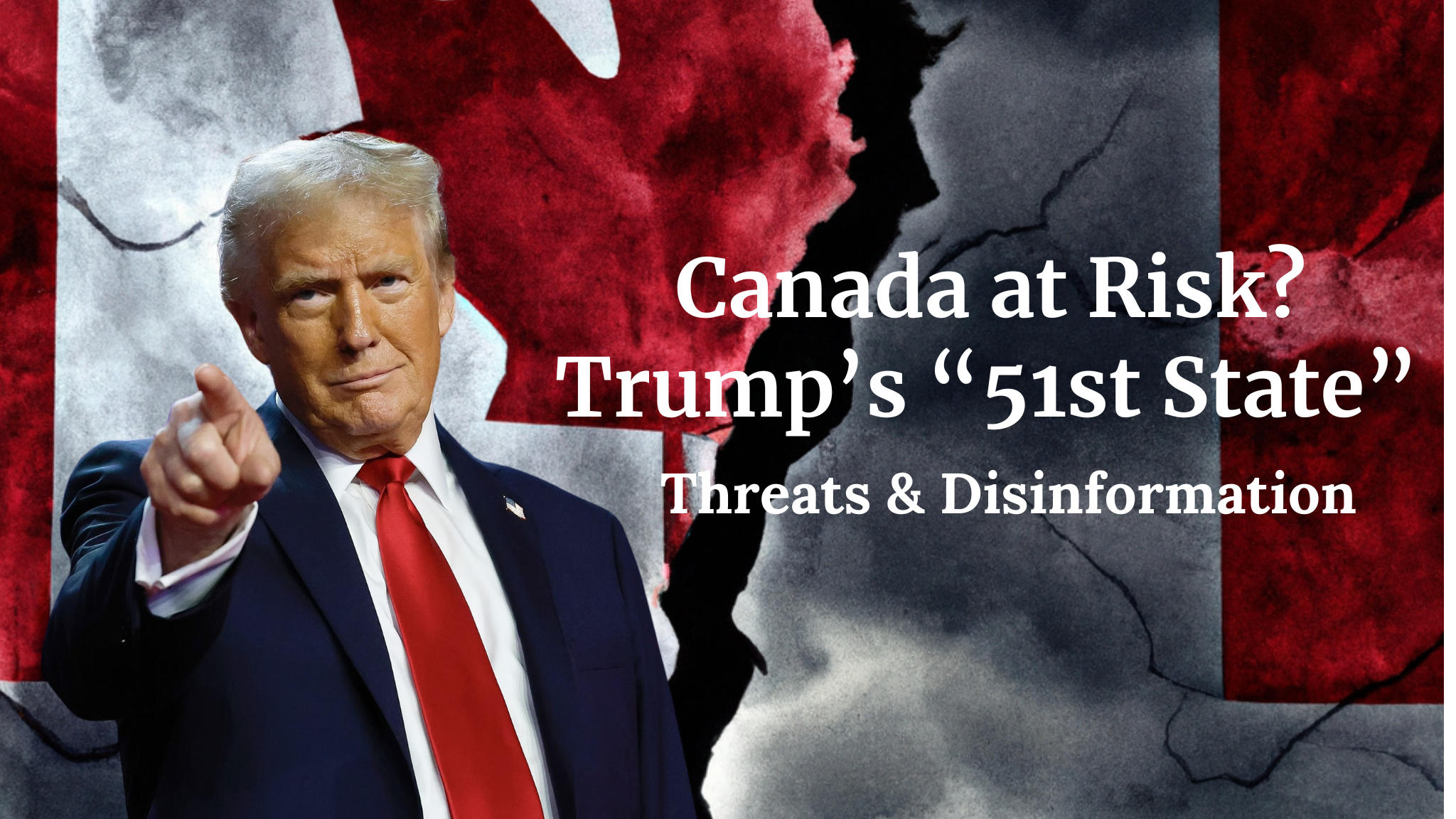Canada at Risk? Trump’s “51st State” Threats & Disinformation

In recent months, former U.S. President Donald Trump has escalated rhetoric suggesting that Canada should become the 51st U.S. state (Robertson, 2024). Coupled with threats of imposing tariffs on Canadian goods, these actions have raised significant concerns among Canadian officials and citizens alike (Liddell, 2024). Former senior Canadian intelligence officials warn that the country must prepare for digital disinformation campaigns designed to destabilize its political landscape and undermine public confidence (Schmunk, 2025).
This issue extends beyond Canada’s borders; if left unchecked, these tactics could set a dangerous precedent for other democracies, making this a global concern. As international tensions rise, it is imperative to understand the potential ramifications of Trump's statements and the strategies that may be employed to counteract them (Associated Press, 2025a).
1. Trump’s Dangerous Rhetoric: A Growing Threat to Sovereignty
Historically, U.S.-Canada relations have been characterized by cooperation and mutual respect. However, Trump's recent assertions mark a concerning departure from this tradition (Gollom, 2025).
What Did Trump Say?
- Trump has repeatedly suggested that Canada should become the 51st U.S. state, initially proposing the idea during a December 2024 summit with Canadian officials (Independent(https://www.independent.co.uk)).
- He has threatened to impose a 25% tariff on all Canadian imports, citing issues such as illegal border crossings and the fentanyl crisis, despite Canada being responsible for a minimal percentage of these problems (AP News(https://www.apnews.com)).
- Trump has referred to Prime Minister Mark Carney as the "Governor of the Great State of Canada," undermining Canada's sovereignty (Globe and Mail(https://www.theglobeandmail.com)).
These statements are not merely political posturing; they lay the groundwork for deeper divisions and could embolden groups seeking to undermine Canada’s sovereignty (Weissert, 2025).
2. Disinformation Campaigns: How Canada Could Be Targeted
One of the biggest concerns for intelligence officials is the potential for widespread disinformation campaigns aimed at creating political and social instability in Canada (Associated Press, 2025b).
How Foreign and Domestic Actors Spread Disinformation:
- Social Media Manipulation — False or misleading narratives are spread on platforms like X (formerly Twitter), Facebook, TikTok, and YouTube (CBC News(https://www.cbc.ca)).
- AI-Generated Content — Deepfakes, fake news articles, and manipulated videos can be used to stoke division (Gollom, 2025).
- Bot Networks — Automated accounts amplify false narratives, making them seem more credible (Guardian(https://www.theguardian.com)).
- Polarization Tactics — Certain groups may be targeted with messages designed to erode trust in the Canadian government (Schmunk, 2025).
References
Associated Press. (2025a, February 20). Trump's remarks on Canada becoming the 51st state raise a lot of questions. Associated Press.
Associated Press. (2025b, February 15). Canada inquiry found no evidence of 'traitors' in parliament, but warns against disinformation. Associated Press.
Gollom, M. (2025, February 10). With a 'Not for Sale' hat and Super Bowl ad, Ford's political rivals face challenges against 'Captain Canada'. CBC News.
Liddell, J. (2024, December 3). Trump joked Canada could avoid tariffs by becoming 51st US state, says report. The Independent.
Robertson, D. (2024, December 25). Donald Trump says he urged Wayne Gretzky to run for prime minister in Christmas visit. The Globe and Mail.
Schmunk, R. (2025, January 6). Trudeau says 'not a snowball's chance in hell' Canada joins U.S. CBC News.
Weissert, W. (2025, February 13). Trump's remarks on Canada becoming the 51st state raise a lot of questions. Associated Press.